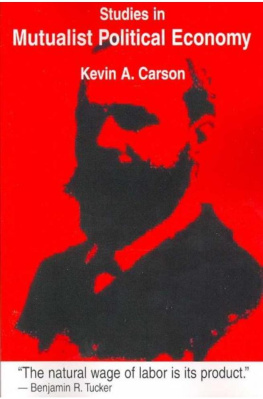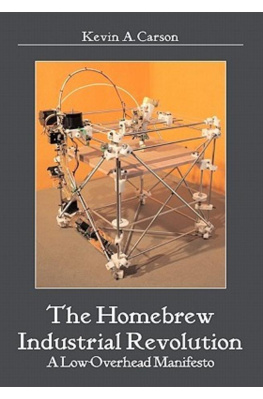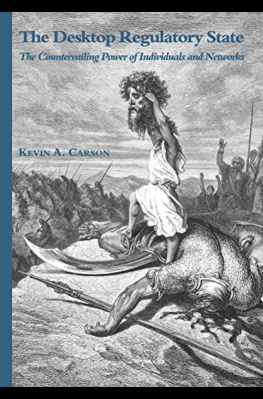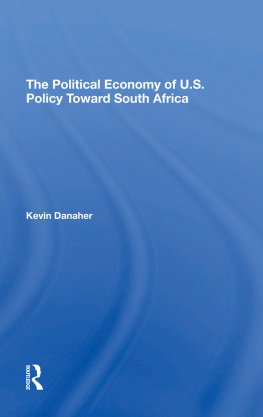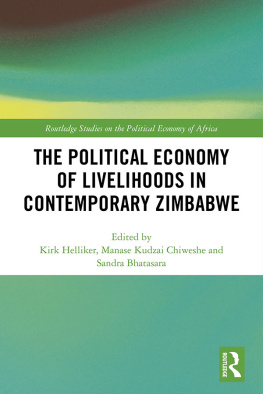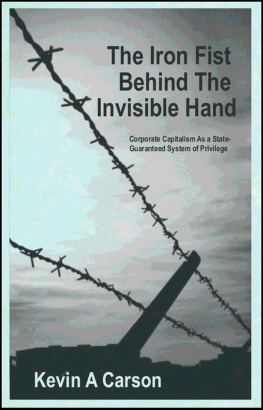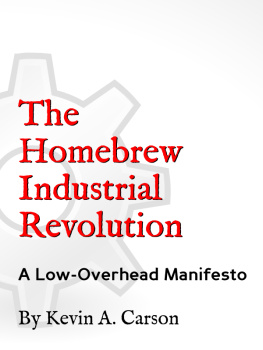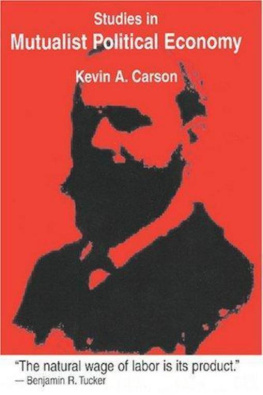Kevin Carson - Studies in Mutualist Political Economy
Here you can read online Kevin Carson - Studies in Mutualist Political Economy full text of the book (entire story) in english for free. Download pdf and epub, get meaning, cover and reviews about this ebook. year: 2007, genre: Politics. Description of the work, (preface) as well as reviews are available. Best literature library LitArk.com created for fans of good reading and offers a wide selection of genres:
Romance novel
Science fiction
Adventure
Detective
Science
History
Home and family
Prose
Art
Politics
Computer
Non-fiction
Religion
Business
Children
Humor
Choose a favorite category and find really read worthwhile books. Enjoy immersion in the world of imagination, feel the emotions of the characters or learn something new for yourself, make an fascinating discovery.
- Book:Studies in Mutualist Political Economy
- Author:
- Genre:
- Year:2007
- Rating:5 / 5
- Favourites:Add to favourites
- Your mark:
- 100
- 1
- 2
- 3
- 4
- 5
Studies in Mutualist Political Economy: summary, description and annotation
We offer to read an annotation, description, summary or preface (depends on what the author of the book "Studies in Mutualist Political Economy" wrote himself). If you haven't found the necessary information about the book — write in the comments, we will try to find it.
Studies in Mutualist Political Economy — read online for free the complete book (whole text) full work
Below is the text of the book, divided by pages. System saving the place of the last page read, allows you to conveniently read the book "Studies in Mutualist Political Economy" online for free, without having to search again every time where you left off. Put a bookmark, and you can go to the page where you finished reading at any time.
Font size:
Interval:
Bookmark:
In the mid-nineteenth century, a vibrant native American school of anarchism, known as individualist anarchism, existed alongside the other varieties. Like most other contemporary socialist thought, it was based on a radical interpretation of Ricardian economics. The classical individualist anarchism of Josiah Warren, Benjamin Tucker and Lysander Spooner was both a socialist movement and a subcurrent of classical liberalism. It agreed with the rest of the socialist movement that labor was the source of exchange-value, and that labor was entitled to its full product. Unlike the rest of the socialist movement, the individualist anarchists believed that the natural wage of labor in a free market was its product, and that economic exploitation could only take place when capitalists and landlords harnessed the power of the state in their interests. Thus, individualist anarchism was an alternative both to the increasing statism of the mainstream socialist movement, and to a classical liberal movement that was moving toward a mere apologetic for the power of big business.
Shawn Wilbur has argued that the late-nineteenth century split between individualists and communists in the American anarchist movement (for which the ill-feeling between Benjamin Tucker and Johann Most is a good proxy) left the individualists marginalized and weak. As a result, much of the movement created by Benjamin Tucker was absorbed or colonized by the right. Although there are many honorable exceptions who still embrace the socialist label, most people who call themselves individualist anarchists today are followers of Murray Rothbards Austrian economics, and have abandoned the labor theory of value. Had not the anarchism of Tucker been marginalized and supplanted by that of Goldman, it might have been the center of a uniquely American version of populist radicalism. It might have worked out a more elaborate economic theory that was both free market and anti-capitalist, instead of abandoning the socialist label and being co-opted by the Right.
Some self-described individualist anarchists still embrace the socialist aspect of Tuckers thoughtJoe Peacott, Jonathan Simcock, and Shawn Wilbur, for example. The Voluntary Cooperation Movement promotes the kinds of mutualist practice advocated by Proudhon. Elements of the nineteenth century radical tradition also survive under other names, in a variety of movements: Georgist, distributist, human scale technology, etc. Unfortunately, individualist anarchist economic thought has for the most part been frozen in a time warp for over a hundred years. If the marginalists and subjectivists have not dealt the labor theory of value the final death blow they smugly claim for it, they have nevertheless raised questions that any viable labor theory must answer.
This book is an attempt to revive individualist anarchist political economy, to incorporate the useful developments of the last hundred years, and to make it relevant to the problems of the twenty-first century. We hope this work will go at least part of the way to providing a new theoretical and practical foundation for free market socialist economics.
In Part One, which concerns value theory, we construct the theoretical apparatus for our later analysis. In this section, we attempt to resurrect the classical labor theory of value, to answer the attacks of its marginalist and subjectivist critics, and at the same time to reformulate the theory in a way that both addresses their valid criticisms and incorporates their useful innovations. Part One starts with an assessment of the marginalist revolution and its claims to have demolished the labor theory of value, and then proceeds either to refute these criticisms or to incorporate them.
Part Two analyzes the origins of capitalism in light of this theoretical apparatus; it is an attempt to explicate, if the reader will pardon the expression, the laws of motion of state capitalist societyfrom its origins in statism, through its collapse from the internal contradictions inherent in coercion. We analyze capitalism in the light of individualist anarchisms central insight: that labors natural wage in a free market is its product, and that coercion is the only means of exploitation. It is state intervention that distinguishes capitalism from the free market.
Part Three, finally, is a vision of mutualist practice, building both on our own previous theoretical analysis, and on the rich history of anarchist thought.
If there is one valuable practical insight in this entire book, it is the realization that coercive state policies are not necessary to remedy the evils of present-day capitalism. All these evilsexploitation of labor, monopoly and concentration, the energy crisis, pollution, wasteresult from government intervention in the market on behalf of capitalists. The solution is not more government intervention, but to eliminate the existing government intervention from which the problems derive. A genuine free market society, in which all transactions are voluntary and all costs are internalized in price, would be a decentralized society of human-scale production, in which all of labors product went to labor, instead of to capitalists, landlords and government bureaucrats.
Some of the material of Parts Two and Three appeared previously in other forms. Chapter Four is a radically expanded and revised version of the subheading The Subsidy of History in my pamphlet The Iron Fist Behind the Invisible Hand, published by Red Lion Press in 2001. Chapter Five is likewise, an expanded version of other sections from the same pamphlet. Chapters Six and Seven are expanded versions of my article Austrian and Marxist Theories of Monopoly Capitalism: A Mutualist Synthesis. Chapter Eight incorporates some material from the same article, along with the subheading Political Repression from Iron Fist. Chapter Nine includes material from my article A Political Program for Anarchists.
Either the labor theory of value, or, secondarily, some other form of cost theory of value, was common to the classical school of political economy in England.
It was stated by Adam Smith in ambiguous form: The real price of everything, what everything really costs to the man who wants to acquire it, is the toil and trouble of acquiring it.... Labour was the first price, the original purchase-money that was paid for all things. In the same passage, though, he spoke of the value of a commodity in ones possession as consisting of the quantity of the labour which he can command.... And at other times, he seemed to make the market price of labor the source of its effect on exchange value.
The most clear-cut and effective statement of the labor theory was by David Ricardo, in Principles of Political Economy and Taxation: The value of a commodity, or the quantity of any other commodity for which it will exchange, depends on the relative quantity of labour which is necessary for its production, and not as the greater or less compensation which is paid for that labour. In so defining the doctrine, Ricardo eliminated the confusion between labor as the source of exchange-value and wages as a component of price.
From this principle, it followed that income accruing to the owners of land and capital was a deduction from this exchange-value created by labor, and that wages varied inversely with profit: If the corn is to be divided between the farmer and the labourer, the larger the proportion that is given to the latter, the less will remain for the former. So if cloth or cotton goods be divided between the workman and his employer, the larger the proportion given to the former, the less remains for the latter.
Font size:
Interval:
Bookmark:
Similar books «Studies in Mutualist Political Economy»
Look at similar books to Studies in Mutualist Political Economy. We have selected literature similar in name and meaning in the hope of providing readers with more options to find new, interesting, not yet read works.
Discussion, reviews of the book Studies in Mutualist Political Economy and just readers' own opinions. Leave your comments, write what you think about the work, its meaning or the main characters. Specify what exactly you liked and what you didn't like, and why you think so.

